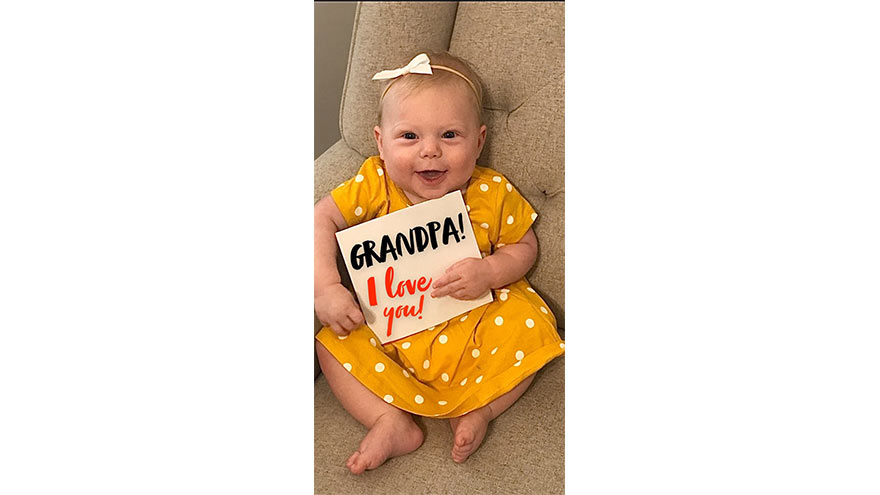Search
-
-
7Aug
Join us for our free virtual Smoking Cessation 4-week program courtesy of Renown Health. This class is available to all who want to learn the risks of smoking and the benefits of quitting. In addition, participants will learn about their triggers to smoking, ways to cope while quitting, and available products to assist with becoming tobacco-free. This program begins on the 1st Wednesday of each month and will meet every Wednesday for four weeks from 4 to 5 p.m. Upon registering, you will receive instructions on virtually connecting 1 day before the class.
Read More About Smoking Cessation: 4-week Virtual Program
-
-
-
4Sep
Join us for our free virtual Smoking Cessation 4-week program courtesy of Renown Health. This class is available to all who want to learn the risks of smoking and the benefits of quitting. In addition, participants will learn about their triggers to smoking, ways to cope while quitting, and available products to assist with becoming tobacco-free. This program begins on the 1st Wednesday of each month and will meet every Wednesday for four weeks from 4 to 5 p.m. Upon registering, you will receive instructions on virtually connecting 1 day before the class.
Read More About Smoking Cessation: 4-week Virtual Program
-
-
-
6Nov
Join us for our free virtual Smoking Cessation 4-week program courtesy of Renown Health. This class is available to all who want to learn the risks of smoking and the benefits of quitting. In addition, participants will learn about their triggers to smoking, ways to cope while quitting, and available products to assist with becoming tobacco-free. This program begins on the 1st Wednesday of each month and will meet every Wednesday for four weeks from 4 to 5 p.m. Upon registering, you will receive instructions on virtually connecting 1 day before the class.
Read More About Smoking Cessation: 4-week Virtual Program
-
-
-
3Jul
Join us for our free virtual Smoking Cessation 4-week program courtesy of Renown Health. This class is available to all who want to learn the risks of smoking and the benefits of quitting. In addition, participants will learn about their triggers to smoking, ways to cope while quitting, and available products to assist with becoming tobacco-free. This program begins on the 1st Wednesday of each month and will meet every Wednesday for four weeks from 4 to 5 p.m. Upon registering, you will receive instructions on virtually connecting 1 day before the class.
Read More About Smoking Cessation: 4-week Virtual Program
-
-
-
2Oct
Join us for our free virtual Smoking Cessation 4-week program courtesy of Renown Health. This class is available to all who want to learn the risks of smoking and the benefits of quitting. In addition, participants will learn about their triggers to smoking, ways to cope while quitting, and available products to assist with becoming tobacco-free. This program begins on the 1st Wednesday of each month and will meet every Wednesday for four weeks from 4 to 5 p.m. Upon registering, you will receive instructions on virtually connecting 1 day before the class.
Read More About Smoking Cessation: 4-week Virtual Program
-
-
What Every Woman Needs to Know About Dense Breast Tissue
In honor of International Women’s Day, we’re working to spread the word about taking care of your breast health and encouraging the women in your life to do the same. Heather Reimer is on a mission — a mission to educate women everywhere about breast tissue type. For women with dense breasts, knowing your breast tissue type is absolutely critical, as cancers embedded in dense breast tissue are not always detectable with a mammogram alone. Dense breast tissue requires a breast ultrasound screening to get a complete breast health picture. Whole Breast Ultrasound for Dense Breast Tissue Heather knows this firsthand. She has dense breasts, and in this video she shares her story about finding breast cancer during a breast ultrasound screening — cancer that went undetected with her mammogram screening alone. As a result of that experience, Heather founded Each One. Tell One. — a movement to encourage women to pass along this information to others and to prompt those with dense breast and implants to consult with their doctor to schedule a whole breast ultrasound screening. To schedule a mammogram or a whole breast ultrasound, call 775-982-8100.
Read More About What Every Woman Needs to Know About Dense Breast Tissue
-
The Facts About Menopause and Early Menopause
Menopause is something that every woman experiences at some point in her lifetime. Learn what to expect and how you can help manage the symptoms and health risks. Most women don’t experience menopause until their 50s, but certain factors such as chromosomal abnormalities, glandular problems and chemotherapy can cause early menopause before the age of 40. No matter what your age, it’s a good idea be aware of the risks and treatments available to maintain a comfortable and healthy lifestyle. Health Risks of Menopause Two of the biggest health risks posed to women who have gone through menopause are bone density loss and risk of cardiovascular disease. Bone loss can be treated with bisphosphonate and estrogens. “Calcium with vitamin D and weight bearing exercise will also limit bone loss,” says Vickie Tippett, MD and OB/GYN at Renown Health. For cardiovascular risk, a healthy lifestyle is key. Discontinuing tobacco use, getting regular exercise and maintaining a healthy weight and diet all help reduce a woman’s risk of cardiovascular disease. Managing Discomforts of Menopause One of the most common complaints about menopause is the discomfort of hot flashes. “Hot flashes can be treated with systemic estrogen alone or in combination with progesterone or another agent similar to estrogen,” Dr. Tippett says. “Non-hormonal medications such as SSRIs and antidepressants also work.” Vaginal dryness, another common symptom of menopause, can also be treated with estrogen, estrogen-like compounds and personal lubricants. Pills, patches, creams and many other formulations are available to help alleviate discomfort. Knowing when, why and what to expect when it comes to menopause can help make the transition easier. Learn the facts about menopause in the infographic below.
Read More About The Facts About Menopause and Early Menopause
-
CEO Blog: Improving Health Through Genetics and Big Data
Renown Health President and CEO Tony Slonim, MD, DrPH, discusses efforts nationwide to develop a more effective and efficient way to deliver care. explains the benefits of Renown Health’s population health study with the Desert Research Institute and 23andMe.
Read More About CEO Blog: Improving Health Through Genetics and Big Data
-
3D vs Whole Breast Ultrasound Which is Right for You
Breast cancer is the leading cause of cancer deaths in women in the U.S. That’s why early detection is so important. Dr. George Krakora, a radiologist with Renown Institute for Cancer, explains what to watch for and how new technology can lead to early detection. Most women know the importance of breast health and staying current with annual breast exams, but may not know that both screening guidelines and technology is evolving. So we asked George Krakora, MD, a radiologist for the Renown Institute for Cancer, what every woman should know about breast cancer detection and which screening method is right for them. First off, when should women start getting breast exams? Generally, women should start getting breast exams using mammography or ultrasound after they turn 40 years old. But we also want women ages 18 to 39 to talk to their primary care provider and ask for what’s called a formal risk assessment to see if screening is needed sooner. And you want to make sure your care provider is giving you a breast exam starting at age 25. It’s also a good idea to be familiar with how your breasts look and feel so you can report any changes to your care provider. What are the risk factors for breast cancer? Are there any preventive steps women can take? There a few risk factors you can’t control, like your age, family history of breast or other cancers, and if you have dense breast tissue. Your risk for breast cancer increases as you get older, and most breast cancers are diagnosed after age 50. Knowing your family history is important because a history of cancer and shared lifestyle can raise your risk. Your breast density can also increase your risk: Women with high breast density are four-to-five times more likely to get breast cancer than women with low breast density. But the good news is there are quite a few things you can do to prevent breast cancer, like not smoking, watching your alcohol intake, and maintaining a healthy weight with good diet and exercise. There are a lot of newer screenings out today. What is the difference between 2-D and 3-D mammography? In a 2-D mammogram, the tech takes X-rays of the breast. These pictures can show the radiologist if there are any lumps or tumors you might not be able to feel. In 3-D mammography, the process is largely the same but more X-rays are taken and it takes a few seconds longer for each image. This kind of exam detects 41 percent more cancers and reduces the number of false-positive results given to patients. This improvement in technology is great for both patients and their care providers. 3-D mammography provides better images of the breast, which allow doctors to more clearly diagnose and avoid false positives, especially in women with dense breast tissue. And what about a whole breast ultrasound. What is that? A whole breast ultrasound uses sound waves to detect cancerous tumors in the breast without using any radiation — it’s an ultrasound just like pregnant women get to check up on their baby. And the exam only takes about 20 minutes. We recommend these exams for patients whose mammograms have shown that they have dense breast tissue. Dense breast tissue can make it harder for doctors to see any abnormalities, lumps or tumors in a mammogram, so this technology ensures better early detection.
Read More About 3D vs Whole Breast Ultrasound Which is Right for You
-
Renown Health Vision for Value Based Care
In recent years, healthcare has undergone many important transitions. One of the greatest changes has been the transition from a fee-for-service model to a value-based care model. Historically, healthcare organizations were paid for the amount of services they performed. This payment model resulted in more tests and procedures ordered, which, in turn, increased our country’s health care costs. However, now our government incentivizes health systems to provide the highest quality of care at the lowest cost possible. This new payment model is called value-based purchasing or value-based care. In this model, providers focus on delivering more coordinated and effective care. Additionally, healthcare organizations track important metrics like patient engagement, population health, and hospital readmissions. At Renown Health, we know that progress on these metrics represents real improvements in our patients’ lives. Shifting Focus from Illness to Wellness Healthcare organizations have traditionally viewed a hospital stay as the center of a patient’s wellness journey. At Renown Health, we believe a key part of our job is to help people live well every day. This means we focus not only on treating illness and injury but also on prevention efforts to keep people out of the hospital. For example, our employees help patients hazard-proof their homes to prevent falls, as falls are the leading cause of injuries in older adults. We also provide affordable health screenings to catch disease in its early stages, when it is more treatable. Renown Health also recognizes that many of the diseases our patients face – from diabetes to cancer – have social and environmental origins. We know that creating a healthier community will have a positive impact on their physical and mental health. Renown Health partners with local organizations to address community-based issues like addiction, pedestrian safety, air and water quality, climate change, and nutrition. Working together, we can lower the number of people who need care and improve the health and wellbeing of our community. Creating healthier environments and communities will help us prevent disease, which in turn will help us decrease spending and improve health. Most importantly, it will help people live up to their full potential. Dr. Slonim on Twitter | @RenownCEOTonyMD Interested in hearing more of Dr. Slomin’s thoughts on health and healthcare? Engage with him on Twitter. Follow Tony
-
My Inspiration to Keep Fighting Becoming a Grandparent
As a clinician and a cancer survivor, I know that hope is an essential force that drives people to work through difficult situations. I also believe there’s a strong correlation between hope and wellness. Hope inspires us to make healthy choices today with the understanding that these behaviors will benefit us in the future. In addition, an optimistic outlook helps patients face illness and injury with strength and confidence. While it’s easy for some people to maintain a positive outlook, it’s common to feel hopeless on a bad day. An important part of our job as healthcare providers is to help patients cultivate hope and build a strong foundation that carries them through their medical journey. The Importance of Family A common source of hope, for me and many others, is family. My family has recently welcomed our newest member, my first granddaughter, Emory. Becoming a grandparent has inspired me to reflect on the many blessings in my life. It’s not only been a opportunity to reflect, but also look ahead to the future. I often dream about the things Emory will accomplish one day, the kind of person she will become, and the world I want her to live in. These aspirations have renewed my determination to work hard and lead by example. At Renown Health, we know that hope and resilience are just as important in the recovery process as excellent medical care. That’s why we work with our patients to find sources of strength and inspiration in their own lives. We’re committed to helping our patients keep fighting the good fight for a healthier tomorrow.
Read More About My Inspiration to Keep Fighting Becoming a Grandparent
-
Beyond Jello A Healthier Approach to Hospital Food
Hospital food gets a bad rap and maybe it’s deserved. However, at Renown Health we strive to serve patients, visitors and staff meals that are both nutritious and delicious. In this video and blog post, Renown Health President and CEO, Tony Slonim, M.D., Dr.PH., FACHE, shares his thoughts on hospital food and modeling healthy lifestyles. Everyone knows that what we eat matters for almost every aspect of our health. Eating well can prevent chronic disease, control weight, improve our mood and even strengthen our bonds with loved ones as we come together to enjoy a family meal. Yet despite this knowledge, balancing work or school responsibilities, family life and everything in between can make eating healthy feel like an uphill battle. Recognizing this challenge, Renown Health invests in programming to help our community embrace healthy lifestyle habits – starting with our own employees. Knowing that people often look to their healthcare providers to model healthy behavior, we are deliberate in our efforts to help our employees and their families live well. We also provide healthy dining options in our on-campus restaurants and through our food and nutrition services team. We believe that providing nutritious, appetizing meals helps patients to recuperate from illness or injury, helps their families recharge, and helps our staff fulfill their promise of providing outstanding care. We hope that by serving as models of healthy behaviors, our employees will inspire others to join us in this journey. Dr. Slonim on Twitter | @RenownCEOTonyMD Interested in learning more of Dr. Slomin’s thoughts on health and healthcare? Engage with him on Twitter. Follow Tony
Read More About Beyond Jello A Healthier Approach to Hospital Food






